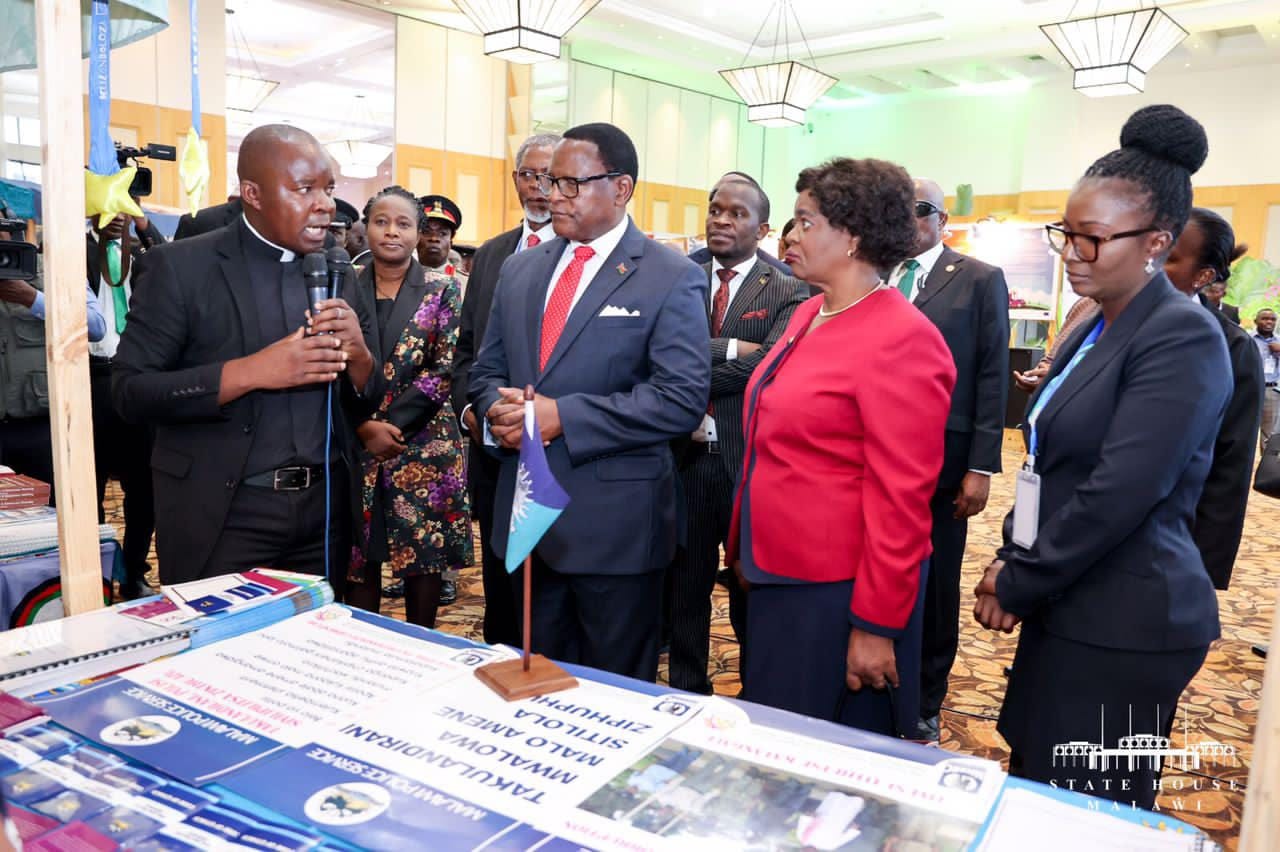Chakwera Calls for Hope Amidst Corruption at Anti-Corruption Symposium: EU Envoy Urges Malawi to Keep Up Anti-Graft Fight
The President warned against the dangers of generalization and despair, drawing parallels with the biblical story of the prophet Elijah, who faced corruption in his time.
LILONGWE, MALAWI - In a stirring speech at the Anti-Corruption Symposium, Malawi President Dr. Lazarus McCarthy Chakwera addressed the issue of corruption in public offices and called for hope and action, write Tionge Hara and Winston Mwale.
Chakwera began his speech by referencing a panel discussion moderated by Joab Chakhaza, which questioned whether the current generation of public officials is beyond redemption when it comes to corrupt practices.
"I believe that whatever our answer is to this question is going to shape not only the narrative we advance about the state of the war against corruption in this country but also the strategy we employ in waging that war," Chakwera said.
The President warned against the dangers of generalization and despair, drawing parallels with the biblical story of the prophet Elijah, who faced corruption in his time.
"Allowing our frustrations to turn into despair can make us do strange things. It can make us paranoid. It can make us wallow in self-pity and self-righteousness. It can make us feel lonely and abandoned. It can make us feel powerless and useless," he cautioned.
Allegations of corruption have surged since the late President Bingu wa Mutharika’s death led to the country's troubled democratic transition.
Mutharika had overseen extensive infrastructure development backed by aid money during his initial years in power, but his final term was marked by repression, economic tumult and accusations that he funnelled contracts to cronies.
His death opened the door for Joyce Banda to assume the presidency, with Mutharika's brother Peter later winning a new term marred by scandal and crackdowns before ultimately losing reelection to Chakwera's then-opposition alliance.
Over two administrations, leaked documents and audits revealed senior officials siphoned millions of dollars from state coffers by inflating costs of goods and services through dodgy contacts while delivering subpar quality.
In one high-profile case, millions meant for hospital construction were instead largely pocketed by bureaucrats, politicians and contractors.
The systematic pilfering has starved critical institutions of resources, imperilling Malawi's development trajectory as one of the world's poorest nations.
About half the 18 million person population lives below the poverty line.
The Anti-Corruption Bureau was established in 1997 as one of the country's first oversight bodies to curb graft that pervaded both private and public spheres.
Initially, the bureau faced severe limitations, lacking prosecutorial powers while investigative staff endured political pressure and meagre budgets.
Director General Martha Chizuma has overseen high-profile busts since assuming control last year.
The scandals have strained relations with international lenders and dimmed hopes for a new dawn heralded by Chakwera's historic unseating of the dominant party that ruled Malawi since independence.
With the next elections now less than 18 months away, Chakwera implored citizens not to abandon the fight.
Meanwhile, the European Union’s ambassador on Thursday praised Malawi for progress on anti-corruption efforts but warned backsliding threatens crucial aid as the country tries rebuilding an economy gutted by graft scandals.
Rune Skinnebach said Malawi has put in place solid accountability frameworks, pointing to tighter controls on spending.
But he said addressing the widespread corruption requires broad collaboration during the next 25 years.
Citizen empowerment to demand transparency from officials must be a core strategy going forward, Skinnebach told the anti-corruption conference.
Skinnebach said bolstering coordination among oversight bodies can help combat graft through a unified front.
The EU is supporting various Malawian anti-corruption and good governance initiatives as part of development assistance programs, Skinnebach pledged.
But Skinnebach noted that budgetary support approved last week by the International Monetary Fund hinges on the country's “continuous commitment” to fighting corruption.
Skinnebach applauded the head of Malawi's Anti-Corruption Bureau, Martha Chizuma, and her team for advancing transparency despite challenges.
However, the EU envoy emphasized that protections for investigative autonomy are crucial.
“Upholding their autonomy is not just a matter of principle but an essential element in safeguarding the integrity of Malawi’s governance framework,” Skinnebach said.
Rampant corruption has gutted Malawi's economy over decades but receives blame as a key factor behind foreign currency shortages and fuel prices that have soared, sparking protests seeking President Chakwera’s resignation earlier this year.




